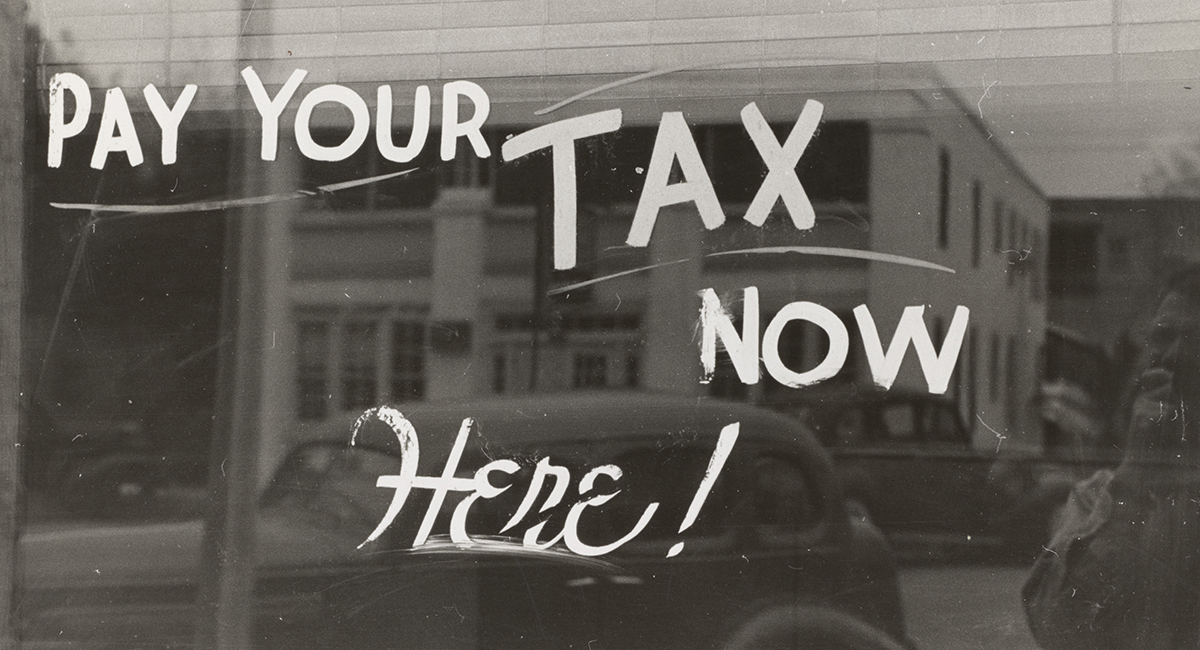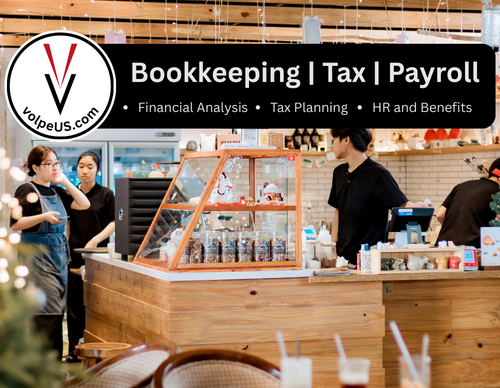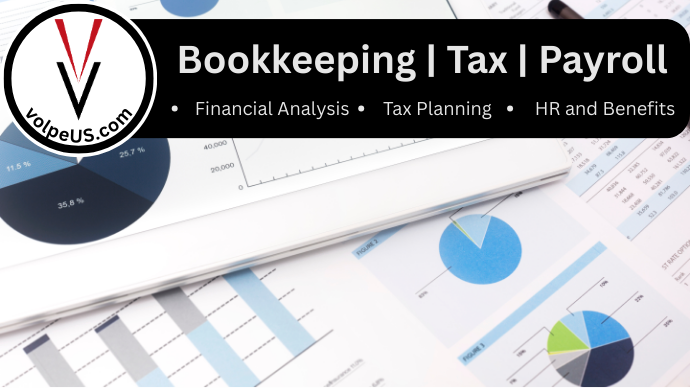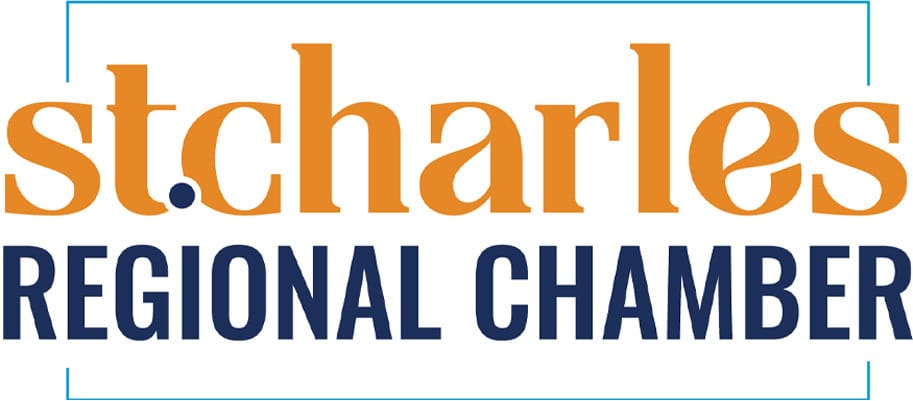Jump to a Specific Section
Drilling Down on the Lavish World of Missouri Taxes
Look, we know taxes are, to most, the only thing that comes close to rivaling politics when it comes to topics that are fun to discuss. Taxes, however, are an important aspect of our daily lives and the economy as a whole. For most individuals and business owners, taxes invoke stressful thoughts of uncertainty.
Did I pay my taxes? How much do I owe? Did I file them correctly? Am I taking advantage of every tax credit possible?
These are the questions we hear from clients every tax season and we want to help you reduce this stress the way we help our clients after we begin working with them. The most important thing to realize is, once you have an understanding of how taxes in the State of Missouri work, tax season can be much less daunting.
It also helps if you have a local accounting firm like Volpe to help relieve this stress 😉, but reading this article is also a good start.
While we work with individuals and companies around the United States — and the tax filing process is pretty identical in all 50 states — we are based in St. Louis, Missouri, and this article is specific to Missouri’s tax and filing requirements. If you are located in a different state, feel free to reach out with any questions.
In this article, we’ll cover a wide range of topics including property taxes, income taxes, sales taxes, and any other applicable local taxes. Here’s what you can expect to learn:
- The basics of Missouri’s income tax system and how it affects you.
- Key details about property taxes and ways to ensure you’re not overpaying.
- Understanding sales tax rates and exemptions to save money.
By the end of this article, whether you are an individual needing help with personal accounting or understanding Missouri’s small business taxes you’ll have a comprehensive understanding of how taxes operate in Missouri, and you’ll be equipped with the knowledge to make smarter financial decisions.

Personal Income Taxes in Missouri
If you live in Missouri and have ever had to file taxes (or do anything with the Missouri Department of Revenue), you probably dealt with a lot of confusion and frustration. Don’t worry, you are not alone.
While the Missouri Department of Revenue website does include a lot of helpful links and resources, their 10-bracket tax system is just about impossible to comprehend if you are not familiar with taxes.
Missouri has a tiered tax bracket system that has different tax rates based on the amount of income an individual makes. This essentially means that your tax rate increases with higher income brackets.
The tax rate for income between $0 and $1,207 is 0%. This means it is essentially tax-exempt. There are then 6 additional tax brackets up until the income reaches $8,449. This is Missouri’s highest tax bracket with $234 plus 4.95% of the excess over $8,449.
For more information, you can view the table below or use one of the many Missouri Tax Calculators available online.
Missouri’s Income Tax Bracket
| Taxable Income | Tax Rate |
|---|---|
| $0 to $1,207 | $0 |
| Over $1,207 but not over $2,414 | 2.00% of excess over $1,207 |
| Over $2,414 but not over $3,621 | $24 plus 2.50% of excess over $2,414 |
| Over $3,621 but not over $4,828 | $54 plus 3.00% of excess over $3,621 |
| Over $4,828 but not over $6,035 | $90 plus 3.50% of excess over $4,828 |
| Over $6,035 but not over $7,242 | $132 plus 4.00% of excess over $6,035 |
| Over $7,242 but not over $8,449 | $180 plus 4.50% of excess over $7,242 |
| Over $8,449 | $234 plus 4.95% of excess over $8,449 |
Paying/Filing Your Taxes in Missouri
As accountants in St. Louis, we obviously advise you to at least speak with an accountant for guidance on the tax filing process. Having said that, this is not a requirement. Like all states, Missouri allows you to manually file your taxes using forms from their website; however, an easier solution is to file your taxes online through the Department of Revenue’s website.
Here is a general overview of the tax-filing process in Missouri
Step 1: Gather Essential Documents The first step in filing is to collect all necessary documents. This includes your W-2s, 1099s, and any other income-related paperwork. You’ll also need records of deductions, such as mortgage interest or charity donations.
Step 2: Decide on How to File You can file your taxes electronically using Missouri’s MyTax Missouri portal, which is fast, secure, and provides confirmation upon receipt. Alternatively, you may choose to file a paper return by mail, or through a professional tax preparer.
Step 3: Complete Your State Tax Return Using either a tax software or the state’s fillable forms, calculate your tax obligation. Remember to apply any eligible credits or deductions, such as the Missouri Property Tax Credit.
Step 4: Submit and Pay Once your return is complete, submit it through your chosen method. If you owe taxes, you can arrange payment directly with the Department of Revenue. They accept checks, credit cards, and electronic payments.

Tax Exemptions and Deductions in Missouri
Missouri offers several tax exemptions and deductions designed to ease your financial burden, allowing you to keep more of your hard-earned money. These opportunities are available to various taxpayers, including both individuals and businesses.
Standard Deduction
Missouri matches the federal standard deduction, which means you automatically qualify if you choose not to itemize deductions. This is a straightforward way to reduce taxable income, making it easier for many taxpayers.
Personal Exemption
While Missouri does not have a personal exemption as some states do, it leverages federal calculations, which may work to your benefit when figuring your taxable income.
Retirement Income Exemption
If you’re a retiree, this one’s for you! Missouri provides an exclusion for Social Security benefits, and you may also be eligible for other reductions related to your retirement income, depending on your age and adjusted gross income. Certain public pensions are currently tax-exempt if certain requirements are met:
- $85,000 for a single individual
- $100,000 for a married couple filing jointly
The total Retirement Income Exemption in Missouri cannot exceed $44,683 per taxpayer.
Military Retiree Income
Retirement pensions of honorably discharged veterans are tax-exempt. Individuals who are currently serving/active duty in Missouri can deduct Military-specific income from their state Adjusted Gross Income.
Missouri’s Tax Credit Opportunities
Beyond deductions, look into available tax credits as well. Missouri offers various credits that can further reduce your tax liability, potentially offering a direct reduction of your tax bill.
Keep in mind, these exemptions and deductions can change, so it’s crucial to stay informed and consult with a tax professional to optimize your tax situation. This proactive approach ensures you’re taking full advantage of what Missouri has to offer when tax time rolls around.
Property Tax Credit
If you’re a homeowner or renter in Missouri, you may qualify for a property tax credit. Specifically, homeowners who are 65 years or older and meet certain criteria can receive up to $1,100. Renters may be eligible for a slightly lower amount of up to $750. This credit can offer some relief by offsetting property tax expenses.
There’s also a great deal of “Miscellaneous Tax Credits” offered by the state that range from Child Adoption Credits to Development Credits. You can see the full list here.

Types of Taxes in Missouri
Sales Tax in Missouri
Missouri has a sales tax of 4.225% for items purchased/sold through a retailer. Individual cities and counties also have the option to impose sales tax as well.
Click here to find out how much your city, county, or district in Missouri charges in sales tax.
You can file your sales tax return electronically on the Dept. of Revenue’s website.
Property Taxes in Missouri
Property taxes in Missouri are a significant consideration for homeowners. They vary by county and are based on the assessed value of your property. This value is determined by the local assessor’s office, considering factors like market value, property improvements, and neighborhood trends.
Factors Affecting Property Taxes in Missouri
Several factors can affect how much you pay in property taxes. The local tax rate, which is set by various taxing jurisdictions, including cities, townships, counties, and school districts, is a key component. Your property’s assessed value compared to the median property tax bill in your area also plays a crucial role.
Additionally, Missouri offers a property tax credit, providing relief for eligible senior homeowners and renters. If you’re a homeowner aged 65 or older, you might qualify for a credit of up to $1,100, while renters may receive up to $750.
It’s crucial to understand these elements to anticipate your annual property tax expenses and identify any potential exemptions or credits you might qualify for.
In St. Louis County, personal property taxes are calculated at a rate of 1/3 the market value of your item.
So, if your car has a market value of $30,000, you will be taxed on the assessed value ($10,000).
On average, most residents pay around 1% in personal property taxes, which is lower than the 1.19% average charged by the rest of the states in the U.S. However, at just over 1.4%, St. Louis County has a higher property tax than the national average.
You can calculate your property taxes here.
Social Security Taxes in Missouri
Currently, 11 states in the US have taxes on social security benefits and Missouri happens to be one of them. However, in this other list of 13 states, Missouri has the friendliest exemptions when it comes to income taxes.
Put simply, you can make up to $100,000 per year and still not owe anything in the State of Missouri.
Estate Taxes in Missouri
Yes and no.
The IRS no longer requires estate tax returns to be filed for deaths that occurred before January 1, 2005.
Get Help Filing Your Taxes in Missouri
We hope this article was able to answer some of your questions and give you a general idea as to how Missouri’s taxes function. Whether you have it all figured out or need some help, you can contact Volpe for a free consultation today!














